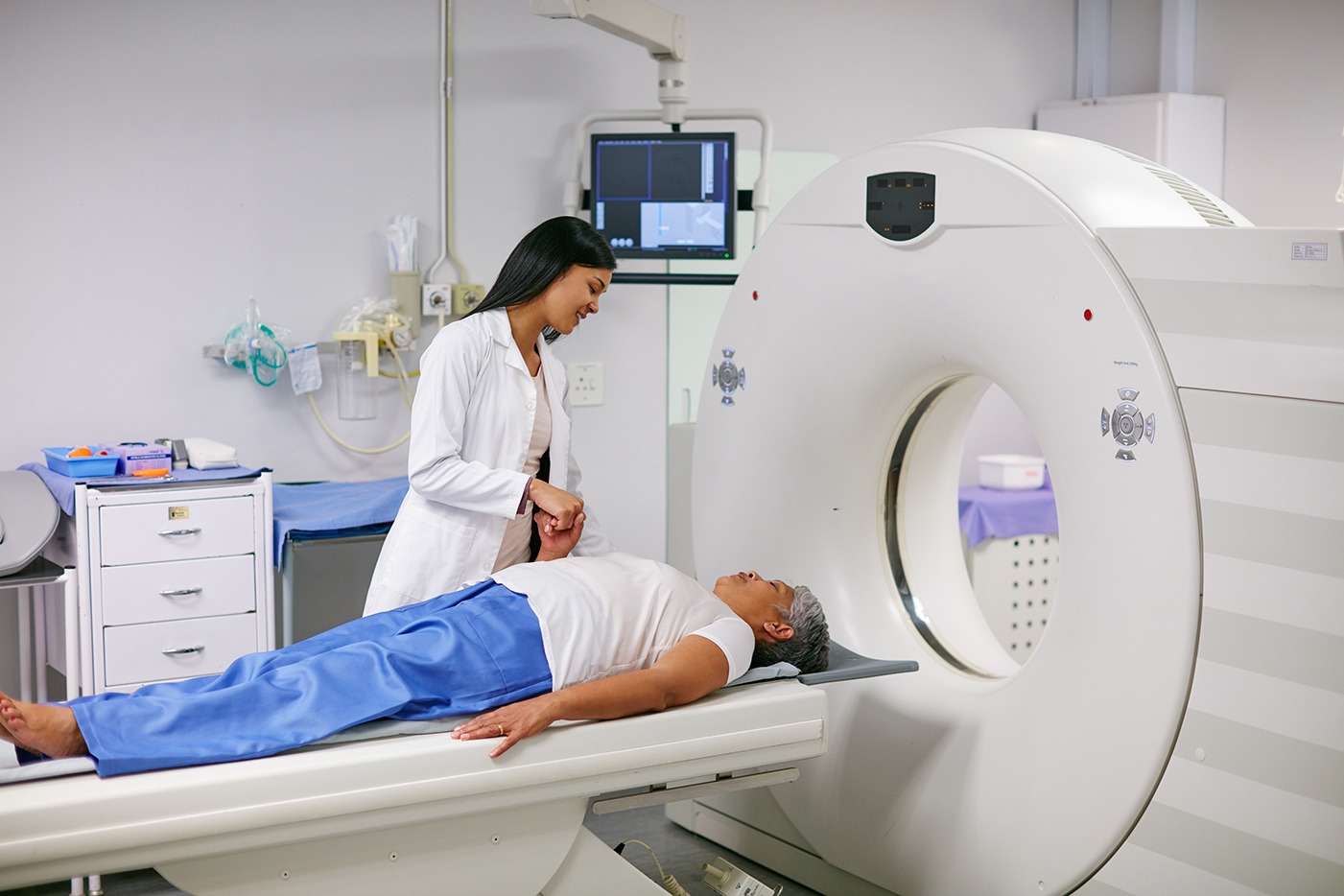Why Would You Need an MRI Neck Scan?
1] Cervical Spine Disorders: Conditions affecting the cervical spine such as herniated discs, degenerative disc disease, or spinal stenosis (narrowing of the spinal canal) are common causes of neck pain. MRI helps identify the exact location of the problem and the extent of nerve compression or damage.
2] Nerve Compression or Radiculopathy: Compression of the nerves in the cervical spine can lead to radiating pain, tingling, or numbness in the arms and hands. MRI can help identify pinched nerves and evaluate the severity of the condition.
3] Neck Pain and Stiffness: If you are experiencing persistent or unexplained neck pain, stiffness, or restricted movement, an MRI can provide important insights into the cause, whether it's related to muscle strain, inflammation, or underlying spinal conditions.
4] Tumors or Cysts: MRI is highly sensitive to soft tissue abnormalities, such as tumors, cysts, or other growths in the neck region. It can help detect benign and malignant growths early, aiding in prompt diagnosis and treatment.
5] Infections or Inflammatory Conditions: Infections such as abscesses or conditions like rheumatoid arthritis can affect the neck’s structures. MRI helps evaluate the extent of inflammation or infection in the muscles, ligaments, and spinal discs.
6] Trauma or Injury: After an accident or injury (e.g., whiplash from a car accident), an MRI may be used to assess damage to the neck's bones, discs, and soft tissues.
7] Blood Vessel Abnormalities: MRI can also help detect abnormalities in the blood vessels of the neck, such as an aneurysm or narrowing of the arteries, which can lead to serious health complications.
8] Surgical Planning and Post-Operative Evaluation: For patients who have undergone neck surgery, an MRI can provide valuable information on the healing process and any potential complications, such as scar tissue or recurrent issues.
The MRI Neck Scan Procedure
1] Preparation: There is usually no special preparation required for an MRI of the neck. However, you may be asked to remove any jewelry, metal accessories, or clothing with metal parts (such as zippers or buttons) before the scan, as metal can interfere with the magnetic field. Depending on the clinic, you may also be asked to change into a hospital gown.
2] During the Scan: You will lie on an examination table, and your neck will be positioned inside the MRI machine. For optimal imaging, your head may be supported or held in place to prevent movement during the procedure. The MRI machine looks like a large tube with a circular opening. The scan involves a series of images, which takes about 30 to 45 minutes to complete. During the scan, you must remain still to avoid blurring the images. The MRI machine is loud, so you may be given earplugs or headphones to help block out the noise.
3] Contrast Dye: In some cases, a contrast dye (gadolinium) may be injected through an IV to provide clearer images of blood vessels and soft tissues.
4] Post-Scan: Once the scan is complete, you can resume your regular activities immediately, as there is no downtime or recovery period needed after an MRI. A radiologist will review the images and send a detailed report to your doctor, who will discuss the findings and recommend a treatment plan.
Advantages of an MRI Neck Scan
1] Detailed Imaging: MRI provides highly detailed images of the neck’s soft tissues, muscles, discs, nerves, and blood vessels, which are difficult to assess with other imaging techniques like X-rays or CT scans.
2] Non-invasive: Unlike surgeries or biopsies, MRI is a non-invasive procedure that doesn’t require any incisions or injections (unless contrast dye is used).
3] No Radiation: MRI does not use ionizing radiation, making it a safer choice for repeated imaging, especially for individuals who need frequent scans.
4] Accurate Diagnosis: The high-resolution images produced by MRI allow for accurate diagnosis, which is crucial for determining the appropriate treatment plan.









